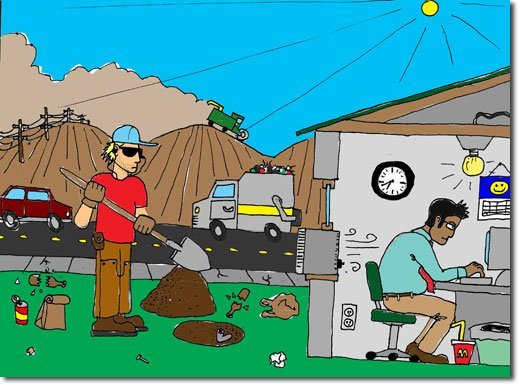 eftdailynews | It has become increasingly difficult to engage in credible economic analysis, especially with respect to the U.S. economy. The problem: ever more limited sources of uncorrupted data, while the farcical “official statistics” have long since been totally divorced from the real world.
eftdailynews | It has become increasingly difficult to engage in credible economic analysis, especially with respect to the U.S. economy. The problem: ever more limited sources of uncorrupted data, while the farcical “official statistics” have long since been totally divorced from the real world.Fortunately we have been presented with some raw, uncorrupted data which demonstrates in conclusive terms that the U.S. economy is literally shriveling before our eyes: a 21st century economy with plummeting energy consumption, and even a declining use of electricity.
As I was sifting through all of Bloomberg’s propaganda on the latest U.S. trade numbers (and trying to latch onto a few facts), I came across one very peculiar passage:
…American companies also bought more consumer household items, automobiles and parts, and crude oil from overseas.
Exports increased 0.7 percent to $178.8 billion, boosted by record sales of petroleum to buyers overseas. That caused the trade gap excluding petroleum to widen even more than the deficit overall…
The great U.S. economy, the largest oil-glutton in the history of humanity (by several multiples) is now a “net energy exporter”. How can this be possible? The U.S. economy has contracted so severely (already) that the only way that U.S. refineries can sell all the petroleum products they produce is to sell them to the growing economies of “emerging market” nations.
Reflecting the broad-based collapse of the U.S. economy, these refineries are now exporting all categories of petroleum products: diesel, jet fuel, and even gasoline are now being exported in large quantities, month-after-month by U.S. refineries. Recall that it was only four, short years ago that many American politicians were alarmed by the crisis of the “lack of U.S. refining capacity”. No new refineries have been constructed in the U.S. in more than 30 years, and at that time those refineries were straining to meet the demand of solely the U.S. domestic market. With that domestic market collapsing, these refineries are now straining to find enough foreign buyers to unload all of their inventories.
Given these facts alone, it is utterly absurd for the U.S. government to pretend that the U.S. economy is growing. Note that the government claims that most of this growth is occurring in agriculture and manufacturing – both very energy-intensive industries. There’s no doubt that the energy-intensive agriculture sector is thriving, a result of a growing global “appetite” and Wall Street-induced shortages in most commodities. So with the large U.S. agriculture sector gobbling up more energy than ever, what does that say about the rest of the (decaying) U.S. economy?
Let us not forget that the U.S. population continues to grow. More people using much, much, less energy; and this is called a “growing economy”? Absurd. Even more absurd, this steadily growing population has been using much less electricity, going back to around 2007.
Mark Lundeen provided a very detailed analysis of the consumption of U.S. electricity in a recent commentary. It shows U.S. electrical consumption peaking in approximately 2006, and then beginning a distinct decline starting in 2007. Yes, power demand has “bounced back” somewhat from the worst of the collapse – but at levels still more than 3% lower than in 2007. Put another way, the supposed "U.S. Economic Recovery" has only resulted in roughly half of that lost demand being restored.






